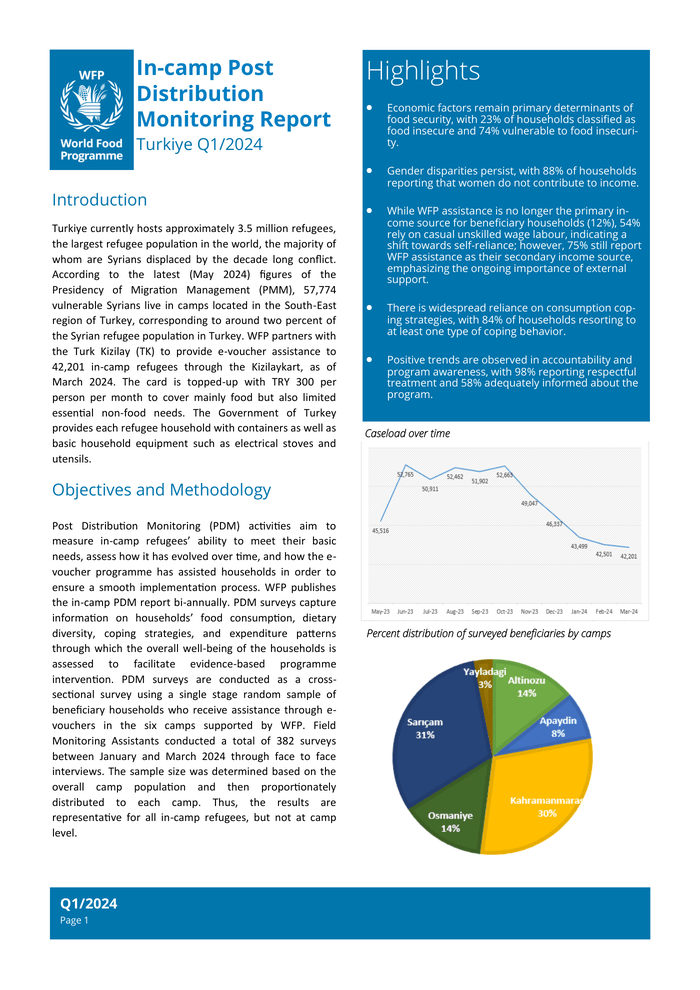Attachments
highlight
• Economic factors remain the main determinant of food security, with 23% of households classified as food insecure and 74% vulnerable to food insecurity.
• Gender disparities persist, with 88% of households reporting that women do not contribute to the income.
• Although WFP assistance is no longer the main source of income for beneficiary households (12%), with 54% still relying on unskilled, temporary wage work, indicating a shift towards self-reliance, 75% still report WFP assistance as a secondary source of income, highlighting the continuing importance of external support.
• Reliance on consumption coping strategies is widespread, with 84% of households relying on at least one type of coping behavior.
• There are positive trends in accountability and program awareness, with 98% reporting they were treated respectfully and 58% being properly informed about the program.
introduction
Turkey currently hosts around 3.5 million refugees, the largest refugee population in the world, the majority of whom are Syrians displaced by a decade of conflict. According to the latest (May 2024) figures from the Turkish Migration Management Agency (PMM), 57,774 vulnerable Syrians live in camps in southeastern Turkey, which represents around 2% of Turkey’s Syrian refugee population. WFP partners with Turkey Kizillay (TK) to provide e-voucher assistance to 42,201 refugees in the camps as of March 2024 through Kizillaykat. The cards are loaded with 300 Turkish lira per person per month, which mainly covers food but also covers limited non-food necessities. The Turkish government provides each refugee household with containers as well as basic household items such as electric stoves and cooking utensils.


